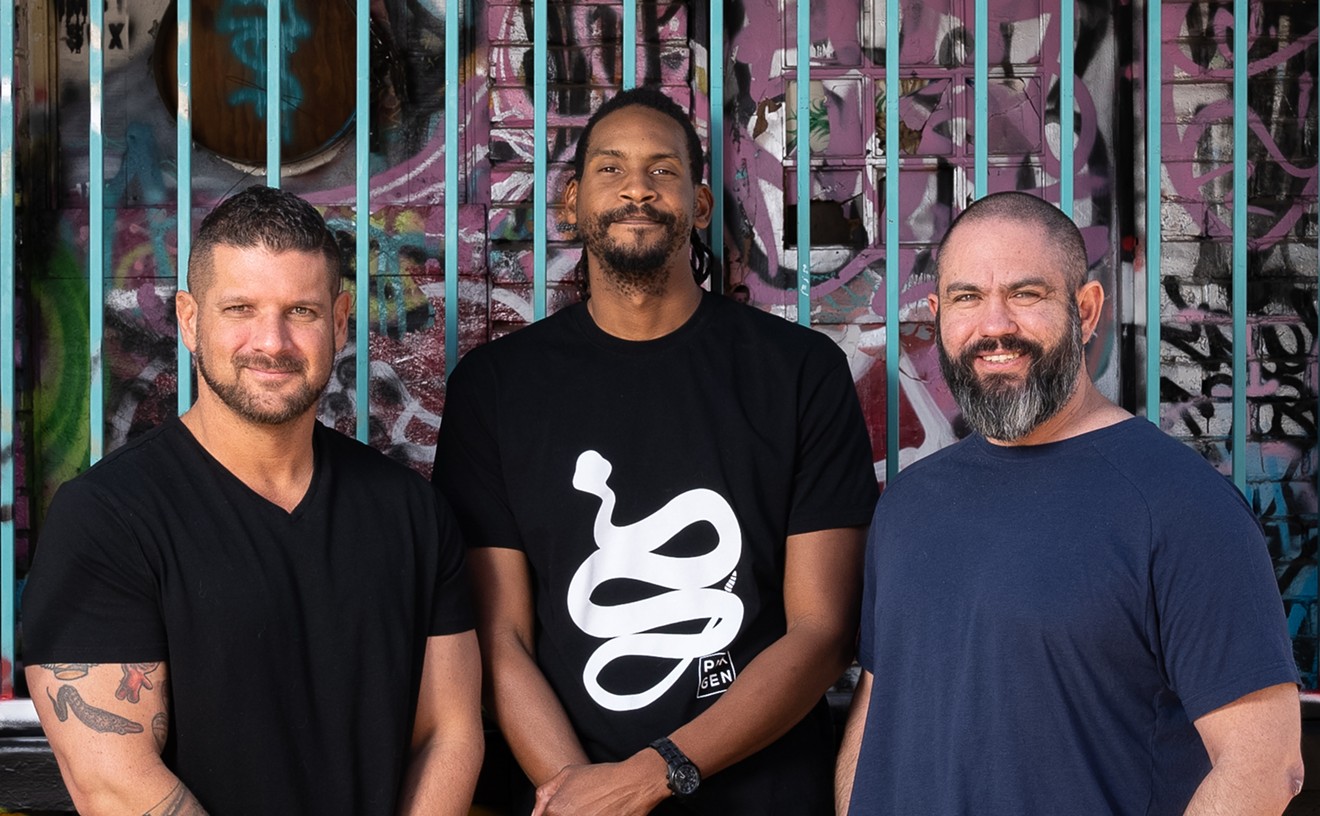In its very first scene, Aziz Ansari's new Netflix series, Master of None, presents something never before seen on TV: an Asian-American male romantic lead at the center of his own series. Granted, that scene is hardly sexy: A broken condom puts the brakes on a bar hook-up between Dev (Ansari) and Rachel (Noël Wells), leading to an Uber ride to the pharmacy to pick up some Plan B. Still, given the historical desexualization of Asian and Asian-American men in pop culture, it's novel, even bracing, to watch an Indian-American dude deal with his totally normal cock.
A later episode reveals Dev to be another first: an Asian-American protagonist obsessed with his own place in movies and TV shows. Sure, Mindy Kaling's character on Hulu's The Mindy Project loves to imagine herself as a rom-com heroine. But as a working actor who's trying to jump from commercials to movies, Dev is forced to make decisions every day about how Indian-Americans are portrayed: accented or not, ordinary or the "other," within the wheelhouse of the familiar (and sexless) "cab driver, scientist, IT guy" roles or as something more.
Ansari has been vocal about the difficulty minority actors face in finding substantial characters to portray. How lucky for us that he and co-creator Alan Yang, a writer on Parks and Recreation, invented not just a new vehicle for the actor but an original perspective to guide it as well. On the one hand, Master of None strides down a well-trod path: A 30-ish man-child searches for love, a purpose in life and a compelling reason to embrace adulthood. Versatility isn't Ansari's forte, so Dev frequently comes across as a more grounded Tom Haverford: a charming weenie and app-addicted magpie who doesn't mind delaying lunch 45 minutes to research the best taco truck in New York.
Lamenting the disconnect between people in a city as crowded as New York is a stock trope, too. But there's a freshness here, as Ansari and Yang's funny and smart observations are informed by their positions as racial outsiders, as well as their keen sense for fairness and empathy. The 10-episode first season addresses divisions between men and women, whites and people of color, different groups of ethnic and sexual minorities, older and younger generations and first- and second-generation immigrant groups.
Here's a tip. When that first season becomes available to stream on Friday, it's advisable to skip over the middling pilot and start with the great second episode, "Parents," a breezy but aching exploration of the sacrifices Dev and his pal Brian's (Kelvin Yu) parents made to come to America — sacrifices the spoiled second generation barely knows anything about, let alone comprehends. In a conversation familiar to many children of Asian immigrants, the Taiwanese-American Brian complains, "I have never, ever heard my dad say the word 'proud.' It's [always] like, 'That's it? So that's all you've done?' Like, if I went to the moon, he would honestly be like, 'When are you going to Mars?' "
While Brian's grievances are legitimate, the show lightly pokes fun at how the two young men don't have much to do with their days besides argue about the rankings of various X-Men movies. "You realize fun is a new thing, right?" Dev's dad, played by Ansari's real-life father, chides. "Fun is a luxury only your generation had."
Dev's New York and social circle hew a lot closer to reality than most movies and TV shows; in addition to Brian, his friends include a bearded white giant (Eric Wareheim), a butch black lesbian (Lena Waithe), a fellow Indian-American actor buddy (Ravi Patel) and, eventually, Rachel again. This array of demographic types isn't merely diversity window-dressing but an opportunity for Ansari, who wrote or co-wrote every episode (and directed a few), to air different perspectives in frank conversations. They argue the ethics of sleeping with a married woman (Claire Danes in a scene-stealing, live-wire performance) and the right comeuppance for a subway masturbator, as well as whether a white actor in brownface (looking your way, Ashton Kutcher) is more liable to get away with it than the same performer in blackface. And, of course, there are the microaggressions that plague most people of color like mosquitoes in the summer, as when Dev and Rachel are awkwardly congratulated for their interracial relationship by a well-meaning stranger.
There's a longish lull in quality in the middle of the season, but the fourth episode, "Indians on TV," and the last two, "Mornings" and "Finale," are as thoughtful, hilarious, affecting and romantic as anything on TV.
Beginning with an embarrassing montage of pop culture's stereotypes of South Asian people, "Indians on TV" is a sustained and observant investigation into why diversity beyond tokenism is so difficult to get on the air — and what kind of tactical compromises actors, who have little control over either the script or the finished product, should be willing or unwilling to make.
But the final two standout episodes have little to do with race, focusing instead on Dev's relationship with Rachel, which is as giddying and wearying and doting and taxing as any real-life pairing. Ingeniously, we see most of the contour of their relationship in just one half-hour, "Mornings," which checks in on Dev and Rachel every couple of months, often at daybreak, over the course of a year. It's the kind of formal innovation you might expect from FX's Louie, and it pays off beautifully. (Master of None also shares with Louis C.K.'s show a debt to '70s Woody Allen, acknowledged with the table-of-contents–like white-on-black credits.)
By the arrival of "Finale," two years have passed, and the hopeful, searching last scene finds that Dev is no longer the existential wriggler second-guessing all his decisions that we met at the beginning of the season. It's an uneven but thrilling transformation.
Master of NonePremieres on Netflix November 6










